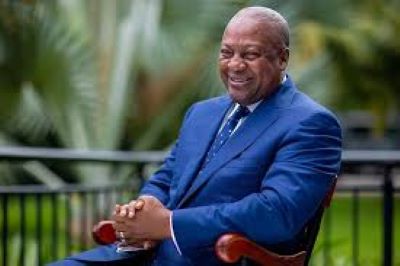Ghana’s newly elected president, John Dramani Mahama, returns to office facing a critical challenge: the growing threat of terrorism spilling over from the Sahel. As extremist groups make inroads along Ghana’s northern border with Burkina Faso, Mahama must craft a multifaceted strategy to prevent violence from taking root in the country’s vulnerable northern regions.
Mahama, who previously served as president from 2012 to 2017, campaigned primarily to address Ghana’s economic crisis. However, his northern roots in Damongo have raised hopes that he will prioritize peace and development in the region.
In his victory speech, Mahama emphasized his commitment to meeting the nation’s high expectations. “Our best days are not behind us. Our best days are ahead of us,” he declared.
Rising risks along the border
Security experts warn that Ghana’s porous 600-kilometer border with Burkina Faso has become a key entry point for extremist groups like JNIM and ISIS affiliates. These groups exploit marginalized communities by recruiting young men through economic incentives rather than ideology.
Adam Bonaa, a security analyst, highlighted the spillover risk, noting that terrorist networks thrive in areas where poverty and unemployment persist. “Bawku, near the Burkina Faso border, epitomizes these vulnerabilities,” Bonaa said. The town, plagued by ethnic violence and lawlessness, has seen critical infrastructure like hospitals and schools shut down, creating fertile ground for extremist expansion.
Local MP Mahama Ayariga echoed these concerns, warning that Bawku could become Ghana’s weak link in the fight against terrorism if swift action isn’t taken.
The role of poverty and exclusion
Experts stress that social and economic investments must complement the government’s military response. Journalist Nosmot Gbadamosi reported that many young men in northern Ghana turn to smuggling and other illicit activities due to hunger and joblessness.
R. Maxwell Bone, an analyst, highlighted the intersection of violent extremism and illegal gold mining in the north, noting that militant groups exploit the trade to finance their operations. “Mitigating social exclusion is essential to preventing recruitment into these networks,” Bone wrote.
Currently, unemployment in Ghana hovers near 15%, with over 6.8 million citizens living in extreme poverty. Without targeted interventions, the North remains highly vulnerable to radicalization.
International support and next steps
Recognizing the urgency of the situation, the United States pledged $100 million in 2024 to support conflict prevention in Ghana and neighbouring countries. The European Union has also provided military assistance to bolster Ghana’s defenses.
However, experts argue that sustainable peace will require more than external aid. Mahama’s administration must prioritize development in border communities, improve security infrastructure, and address the root causes of discontent to safeguard Ghana from the creeping threat of Sahel-based terrorism.
ADF


